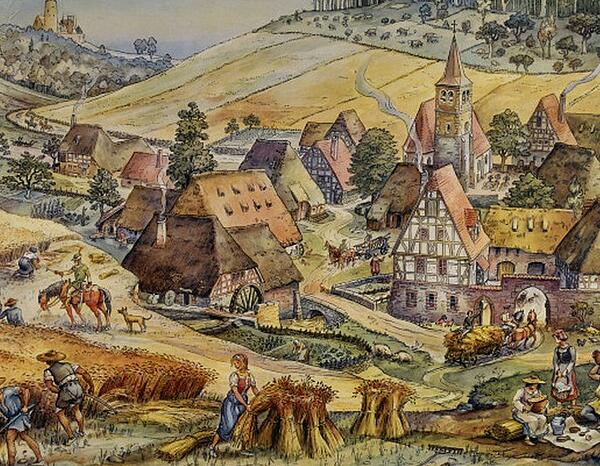Medieval Masons
The skilled masons of Medieval England were responsible for constructing some of the most prominent structures of the era, including castles, churches and cathedrals.
Medieval masons all belonged to a renowned guild that required them to move wherever their skills were needed, and even had a presence overseas. The Mason’s Guild was also known as the Freemasons due to the fact that its members often used ‘free’ stone, which was known for being particularly soft and perfect for detailed carvings.

While other tradesmen could settle in area where their craft was consistently required, masons would be required to travel as soon as their project was finished, and in some cases their next job was a significant distance from the last.
Once masons reached the top of their trade they became known as a master mason and would be able to take charge over a building site, including all masons and other craftsmen who worked on it. Master masons would also have access to a mason’s lodge, which would be constructed on all important building sites alongside a workshop building and a drawing office.
Any tradesman who arrived on a building site and claimed to be a master mason would have their skills tested by the master mason already present, which would ensure a high level of quality was maintained throughout the project.
Masons would also have access to an apprentice, who would travel alongside them when they moved to each new project. Once this apprentice had enough skills and knowledge about their particular craft, they would be able to undertake an exam at the masons’s lodge. Should they pass, they would be appointed a new master mason and awarded a unique mason’s mark. This would then be included in any projects he completed so it could be identified as his work.
This system of training and maintaining standards ensured that the masons produced high quality work every time they completed a project. As a result, much of their work is still visible today on cathedrals and castles around England.
See also: Medieval Guilds
MLA Citation/Reference
"Medieval Masons". HistoryLearning.com. 2026. Web.
